Valhalla is Ubisoft’s latest entry into the beloved Assassin’s Creed series. Since Origins, the franchise has taken on a new, more RPG-like, direction, improved in Odyssey and further iterated in Valhalla.
AC Valhalla follows the story of Eivor, a young but fierce Viking from Norway, who can be male, female… or both and neither at the same time. Early in the game, you will be prompted to choose the protagonist’s sex or allow the Animus to recreate it based on a number of circumstances, which leads to Eivor seamlessly switching from being male to female and vice versa throughout your playthrough. There is an in-game explanation of such a phenomenon, but it comes near the very end of Eivor’s journey. In my stay in Valhalla, I have played female Eivor and so I will refer to the character as she in this review.
Following an eventful few-hours-long prologue, you will find Eivor and the Raven clan in the rich lands of England, carving out a place for their people to live and thrive in. Between wars and secrets, the conflict of the Hidden Ones and the Order of the Ancients, and Eivor’s own fate… Will you claim your peace in Valhalla? Can you keep your loved ones safe?
Put your hidden blade on: this is our Assassin’s Creed Valhalla PC Review.
Gameplay
Valhalla’s gameplay is not particularly different in its core from Origins or Odyssey but there are still noticeable changes in a variety of ways:
Combat
It was hard to imagine combat becoming more of a spectacle than it was in Odyssey with the Eagle-Bearer literally ripping shields out of enemies’ hands with the spear and Spartan Kicking everyone at any given opportunity.
And yet, Valhalla managed to do it. Group combat flows like an action movie and can include a sequence like Eivor killing an enemy with their own weapon, stomping on the head of another one, throwing a fallen soldier’s weapon at the third, and so forth. It makes combat seem epic, bloody, and full of brutality.
The AI made a step forward compared to the previous games of the series: enemies actively seek to corner the protagonist, pick up weapons found on the battlefield and easily switch to ranged if you try to disengage. That is, when it works. Chances are you will frequently run into groups of enemies that are standing still and looking at Eivor, awaiting their death.
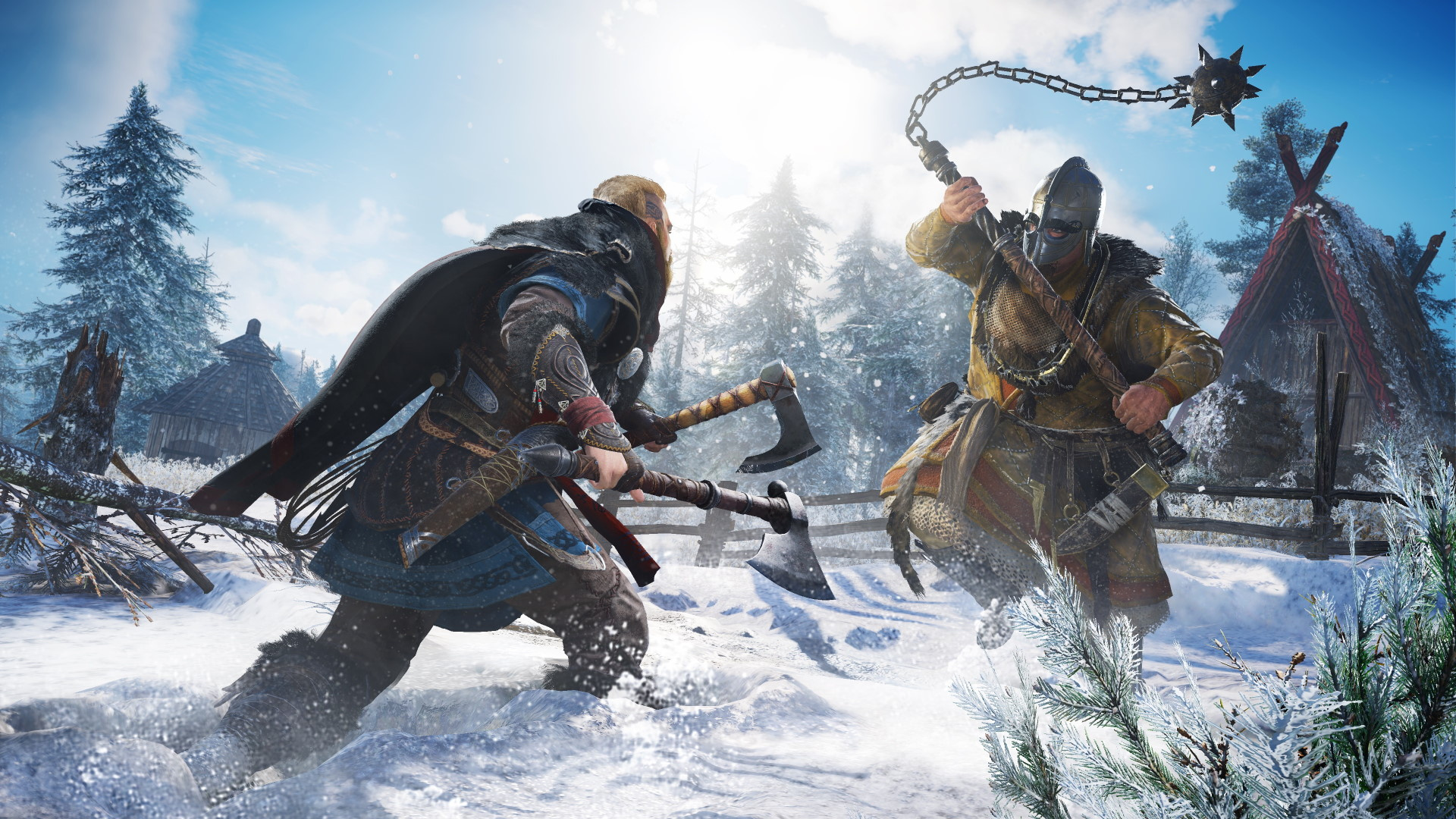
The general flow of combat is not any different from Odyssey: you have your evasions, blocks, fast attacks that build focus, and slow attacks that spend it (with the exception of a few weapons like daggers or hammers that use focus on all attacks).
Valhalla’s own twist includes being able to equip any two weapons together, including two shields or two spears or other heavy weapons (though this option requires a special perk).
Additionally, Eivor has access to three separate bows using three different types of arrows: Hunting Bow, Light Bow, and Predator Bow. Although you will have to pay for the abundance of ammo with your ability to actually craft it. Not that it really matters in the big picture of things: there are a number of ways to acquire more ammunition, from buying it from vendors to looting it from stashes and very handy random animal carcasses and tree stumps.
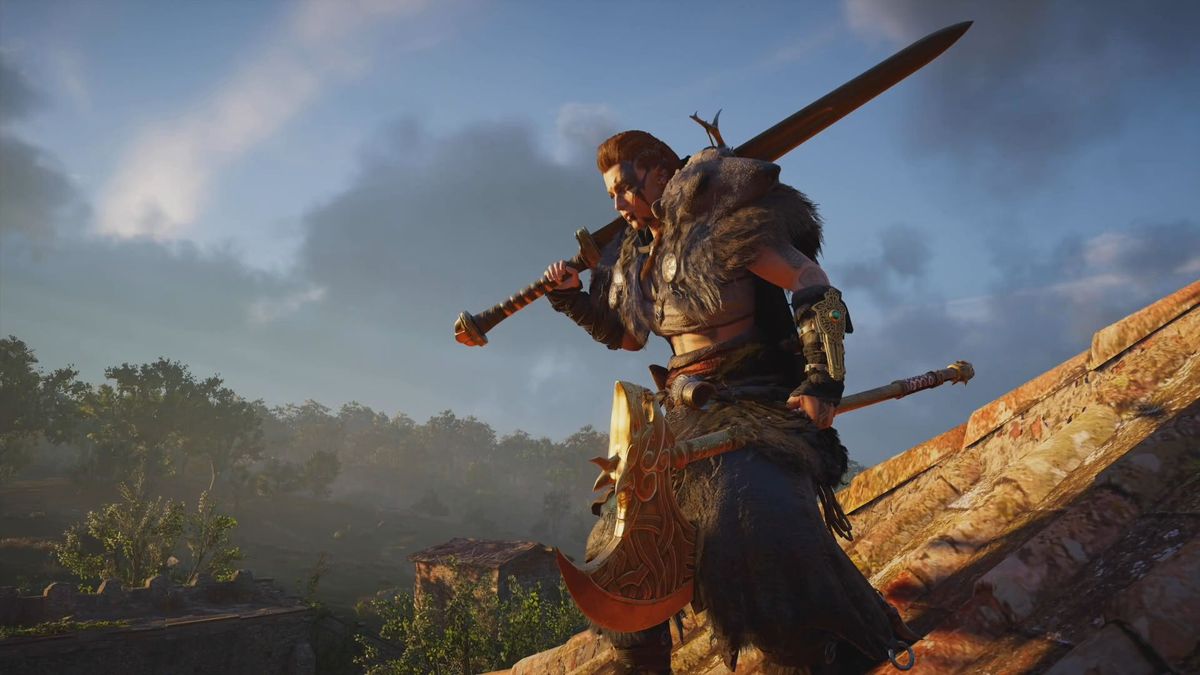
Progression System
It seems the developers from Ubisoft have heard the community’s outcry about Odyssey: having to grind to be able to progress the game is not fun. So in Valhalla the team tried something new: gone are the usual levels, instead, the game utilizes a system of power to vaguely outline how hard a particular zone is.
Power points is something you get from doing practically anything. Finished a world event? Get a few points! Found a marked treasure? Great, you get some more. Progressed through the main story? The game will shower you with them!
There is a tree with a total of 400 points that you can spend your acquired power on.
The catch is that Valhalla pulled too far into the other extreme from Odyssey, making the whole system feel unrewarding and boring. Most of those 400 points provide you with passive increases to damage, like +1 to hidden attacks or +3 to poison with a couple of dozen passive abilities scattered throughout the tree that make it worthwhile. You also can not see the entirety of it in the beginning of the game, opening new branches only when you fill out previous ones, and so it is impossible to plan your character’s progression.
The active skill progression faces a similar problem. Unlike Odyssey, in Valhalla, you acquire new skills by uncovering books hidden around the world or finishing quests. With the system of power dictating the order in which you unlock regions, it basically means that you get the skills in the order Ubisoft intended and not in the order you want.
Having heavily specialized in ranged combat, I spent about a third of my game with basically no abilities to use because all the books I found either taught Eivor a new melee ability or improved one of the already discovered ones. This feels almost anti-RPG like.
Obviously, I don’t demand the min-maxing you can find in Pathfinder from a game like Valhalla, but I like to have control over the way my character progresses.

Gear/Rewards
Another area in which Valhalla wildly differs from Odyssey is what you get for your rewards. The game is quite stringy when it comes to handing out gear but it compensates it with enough resources to upgrade your existing weapons and armor pieces.
In fact, you could finish the game in the same set you acquired very early on by upgrading it repeatedly which is what I ended up doing with the Huntsman’s set.
It does save the annoyance of having to unload buckets of crap gear from your inventory but it also doesn’t feel too good.
For example, let’s compare the two Legendary Beasts hunting quest chains: Odyssey provided the Eagle-Bearer with an entire Artemis set (and romance with Daphnae) while Valhalla offered one bow and a bunch of cosmetics.
There are many instances where it feels the time and effort that went into something simply wasn’t worth it in the big picture of things.
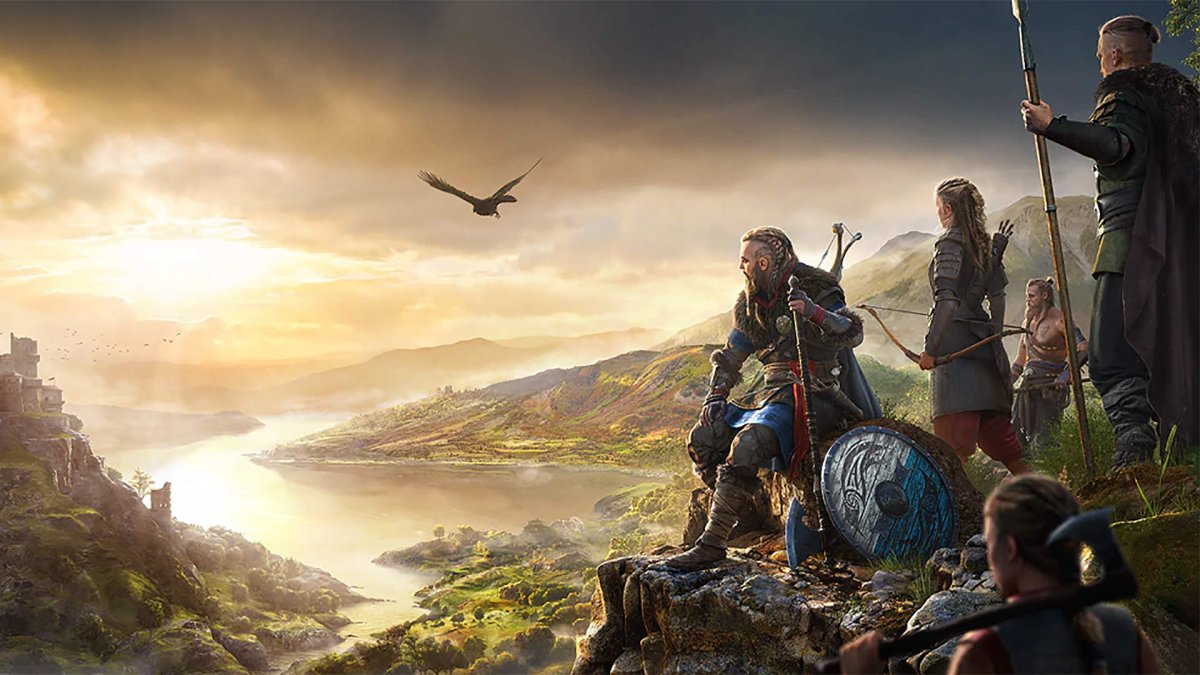
General
In Odyssey, you could use Icarus to scout ahead, find quest-related items and characters, and mark them. While you still have a bird in Valhalla, a raven named Synin, its abilities and usefulness have been drastically reduced.
Instead, Eivor is using something called Odin’s sight: holding down V (by default) allows the Viking to scan the area and color objects of interest, be it enemies, treasures, artifacts, and more.
On the other hand, the Viking’s mount has received an upgrade: you can now set it to auto-travel to a quest objective or a map marker via roads or even teach it to swim.
To reinforce the Viking fantasy of the game, Valhalla left behind the ship combat and introduced new features: raiding and castle sieges. During your stay in England, your clan’s village would need resources to expand. The only way to acquire needed materials is to raid monasteries. While you can also raid the local fishing villages and small towns as well as revisit already raided monasteries, the rewards will not be quite the same as during the first-ever attack.
Just approach your target via ship, blow your horn and your war party will follow you to pillage and slaughter their way through. Once the enemies are dealt with and local buildings have been set on fire, you are free to loot treasures and be on your way.
Castle sieges are usually encountered as a part of the main quest chain. Frequently enough, Eivor would need to win over somebody’s favor to create an alliance and it might mean booting someone else out of their keep. Usually, that involves breaking through a few gates and killing a whole bunch of NPCs.
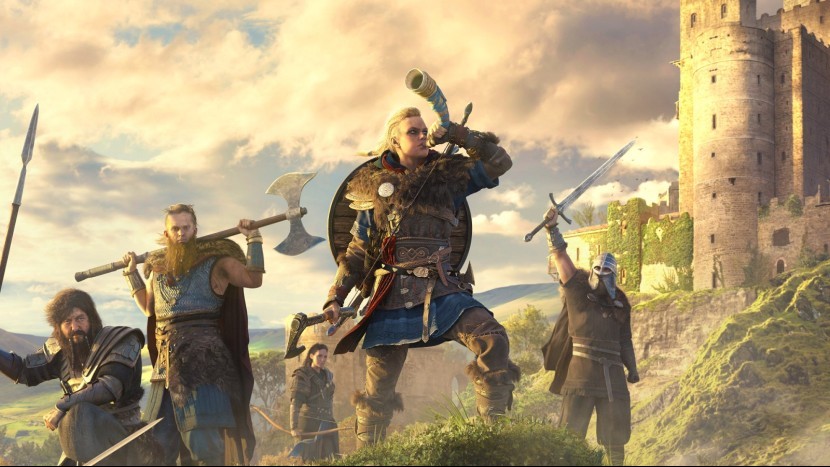
Story
Eivor’s Journey
Not going to lie, I’m particularly drawn to smart-mouthed charismatic roguish characters, and I have fallen in love with Odyssey’s Kassandra by the time she encountered the Cyclops and did you-know-what with his eye.
The process of warming up to Eivor took much more time. The first time you encounter adult Eivor, she is a vengeance-driven surly warrior, going against the orders of her king and possibly endangering her people for the sake of revenge. She is stoic and quiet, with her early dialogue equaling to “EIVOR GRRR”, and I sorely missed Kassandra’s easy smirk and teasing banter in the first few hours of the game.
But the Wolf-Kissed slowly but noticeably changes when the twist of fate brings her and the clan to the shores of England. With her honor reclaimed, Eivor is free to make friendships with Danes and Saxons alike and learn the burdens of leadership. With every new zone (and many world events), there is something new added to the canvas that is Eivor.
By the end of the game, her growth far outshines that of Kassandra, who had remained an Eagle-Bearing misthios through and through even if she rubbed elbows with some of the most important people of Greece. And, needless to say, I love them both about equally now and can’t wait to see what Ubisoft still has in store for the Viking.
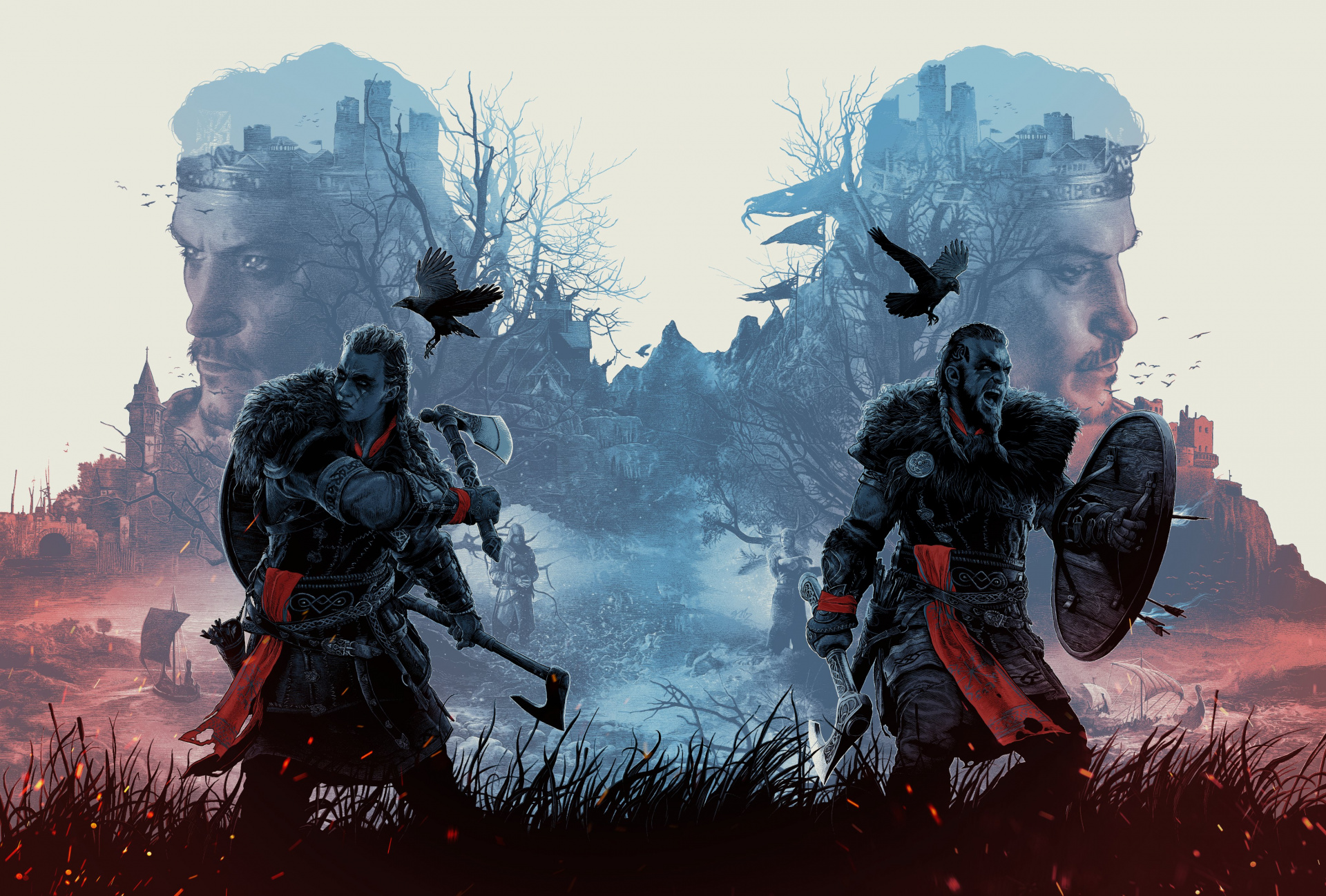
The Overall Story
Despite the great story of Eivor’s personal growth as a person and a leader, not everything in Valhalla is equally well done. In particular, it is related to the overall story of the game.
Just like Odyssey and the previous Assassin’s Creed titles, Valhalla aims to explore multiple storylines at the same time. In general terms, they can be split into 5 separate stories:
- The story of Eivor and Sigurd (the main story of the game)
- Asgard and Jotunheim (Eivor’s visions)
- The story of the Hidden Ones and the Order of the Ancients (the overall AC story)
- The story of Layla (the modern story)
- The story of Isu (told via the Animus Anomalies & more)
These five storylines exist in the game at the same time and can be explored throughout your stay in England. It isn’t a brand new approach to the story in the AC series, the structure of the plot in Odyssey was very similar in terms of storylines: Kass & Alexios, the Cult of Cosmos, Layla’s adventure, and the Isu bits. However, there is a world of difference in the way it was approached.
From the early hours of Odyssey, at least three of the four stories were tightly woven together: Myrrine’s children were hunted by the Cult of Cosmos due to their bloodline. With the Spear of Leonidas pointed out as an Isu artifact early on, even those who didn’t pay much attention to the story could surmise that Kassandra and Alexios had a connection to the mysterious Isu. This tight plot coil made the three stories inseparable and a part of the whole narrative, immediately painting the Cult as the big bad in the story of Kassandra’s and Alexios’ bond of blood.
Sure, it wasn’t perfect back then, either: the ending of the Cult of Cosmos storyline required grind, and the bit connecting the Isu and the modern storylines was hidden behind killing off all mythical creatures. But it worked.
In an attempt to keep Eivor’s connection to the Isu a secret, Valhalla keeps the five (with the addition of Asgard) stories as separate as possible until it all comes crashing together in the end like a bucketful of water thrown on the top of your head.
The Order of the Ancients is shown as a very far away enemy “that will not let Raven clan live peacefully in England”. Even after a personal run-in with the Order, it is still not the big bad of the game with every zone featuring its own protagonist (to make an Alliance with) and an antagonist to defeat.
Asgard (and later Jotunheim) exists all on its own and its connection to the main story is unclear until the end, much like the Animus Anomalies.
This approach of making sense of the story at the very end does work sometimes – like in Divinity 2: Ego Draconis – but in the particular case of Valhalla? It simply doesn’t.
Eivor & Sigurd
The main story of the game is supposed to focus on Eivor and her brother Sigurd. Very early in the game, Eivor receives a prophecy that tells the impossible: she will betray her beloved brother. Gasp!
The early game goes strong about referencing and building that story, showing the relationship between the two Vikings and how they tackle hardships together.
But moving to England puts this story on the back burner: the interactions with Sigurd are few and far in between, with many hours frequently passing by until you get another story beat.
While many characters reference Sigurd and his relationship with his sister, it quickly begins to feel like a side-plot to the overall England storyline. And, while I was glad to get the “good ending”, I wouldn’t have been bothered as much by the “bad one” as I was in Odyssey. Sigurd’s storyline fails to make players feel the same connection to him as Odyssey did with Kassandra, Myrrine, and Alexios.

Overall story cohesion and how welcoming it is to new players
I had frequent run-ins with the Assassin’s Creed franchise but the series really only drew me in when it changed its approach in Origins and onward. And I am very, very lost despite trying to uncover as much lore as I can when I can in all the games I’ve played.
Even Wiki didn’t help much and only left me with a very vague idea of what is going on in the (modern) world, why are the Assassins looking for the Isu tech, who are the Templars, and why are they getting in the way of literally saving the world and what does Layla have to do with it all.
Note: the game is a verified purchase by the author.

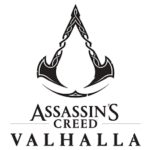
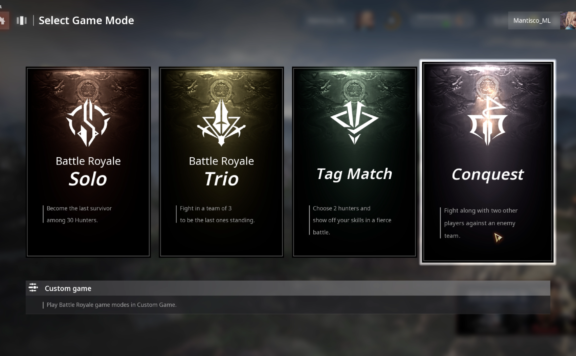

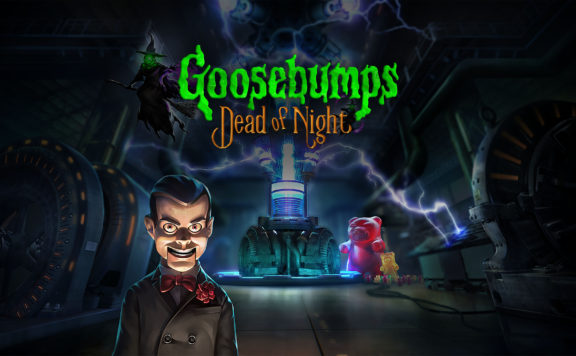

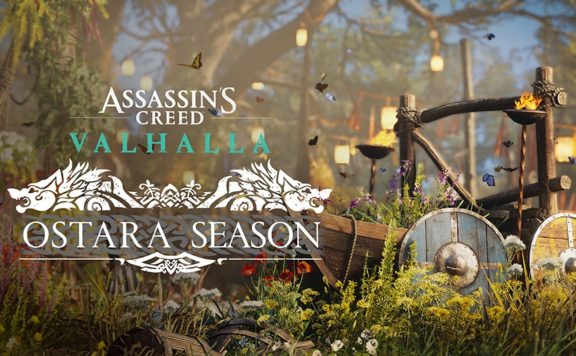
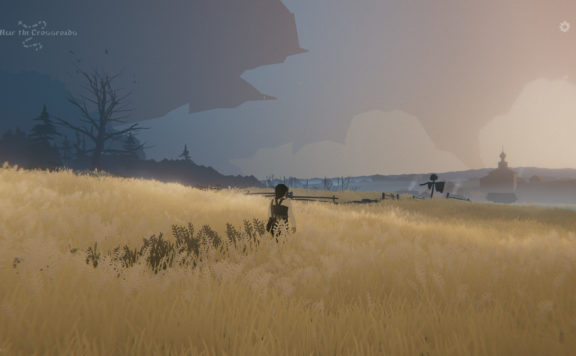
blueturtle
Such an awesome game